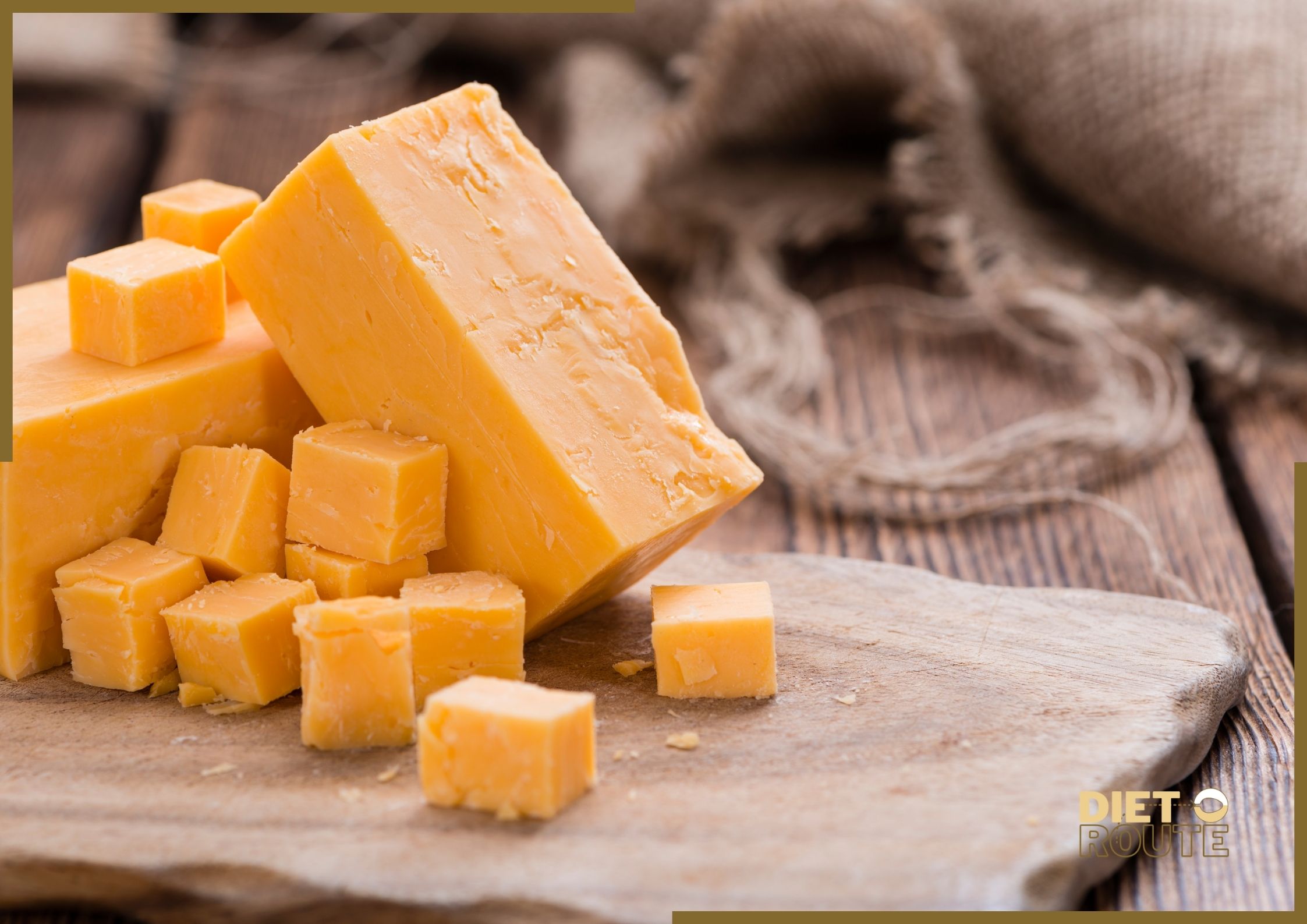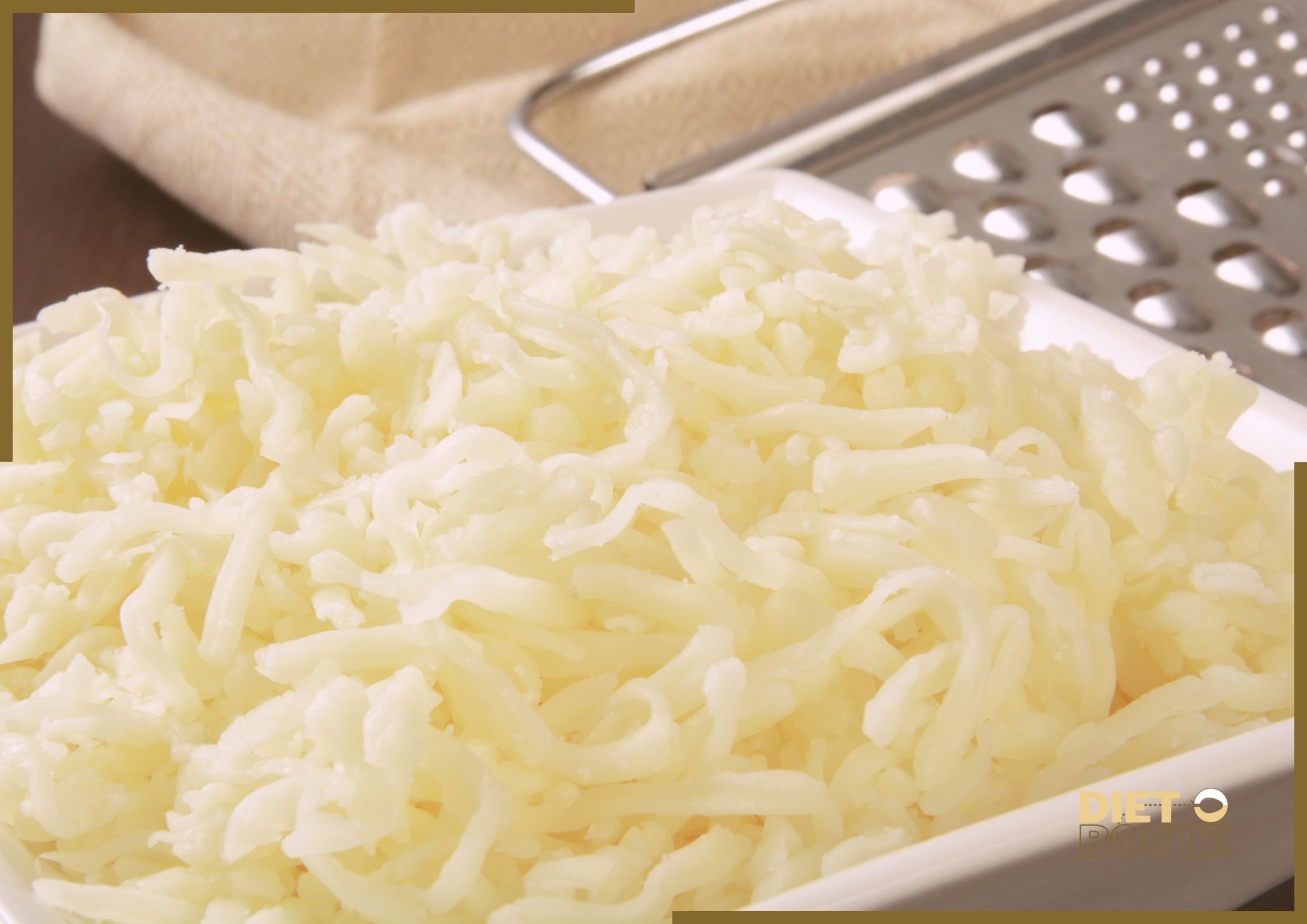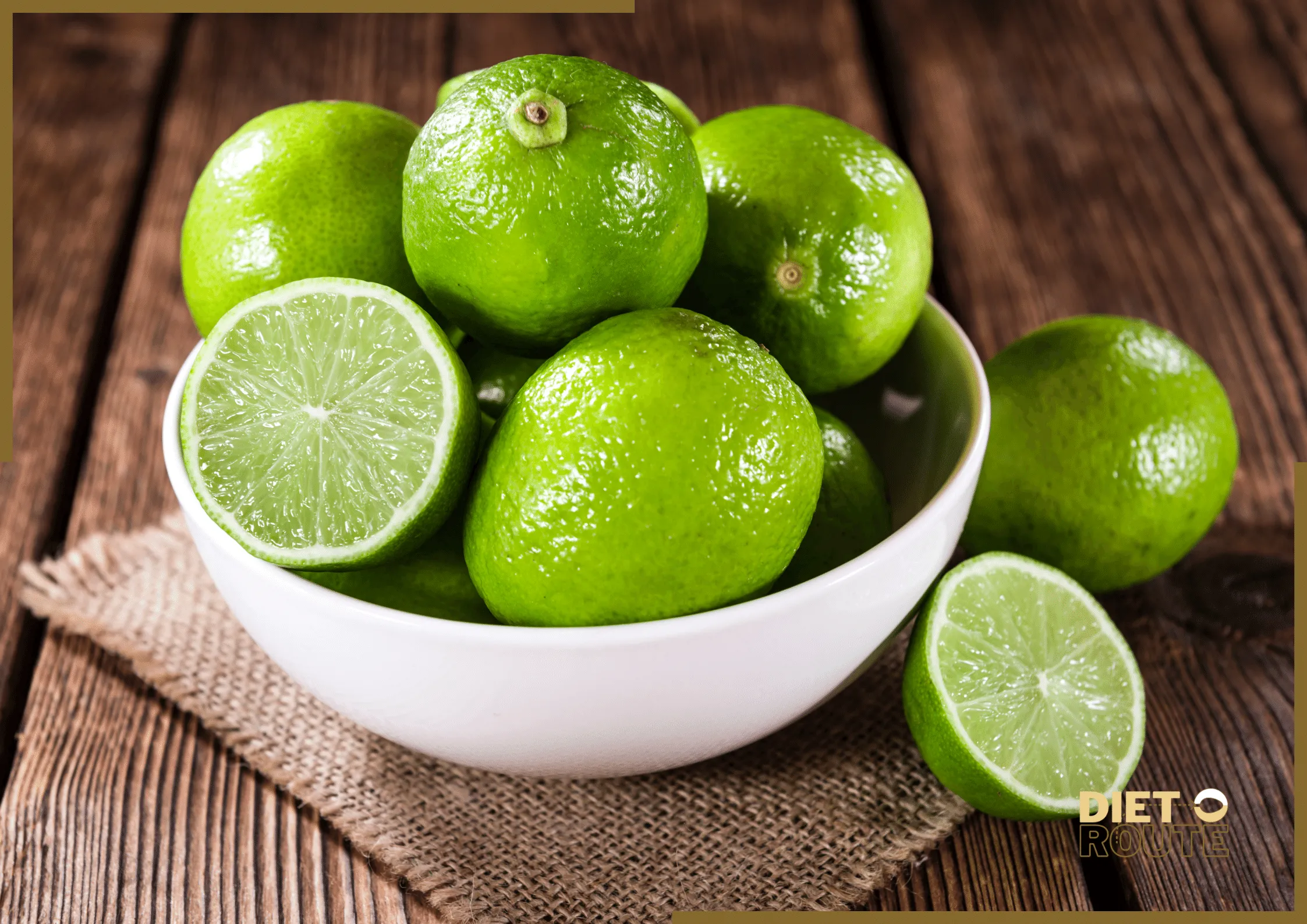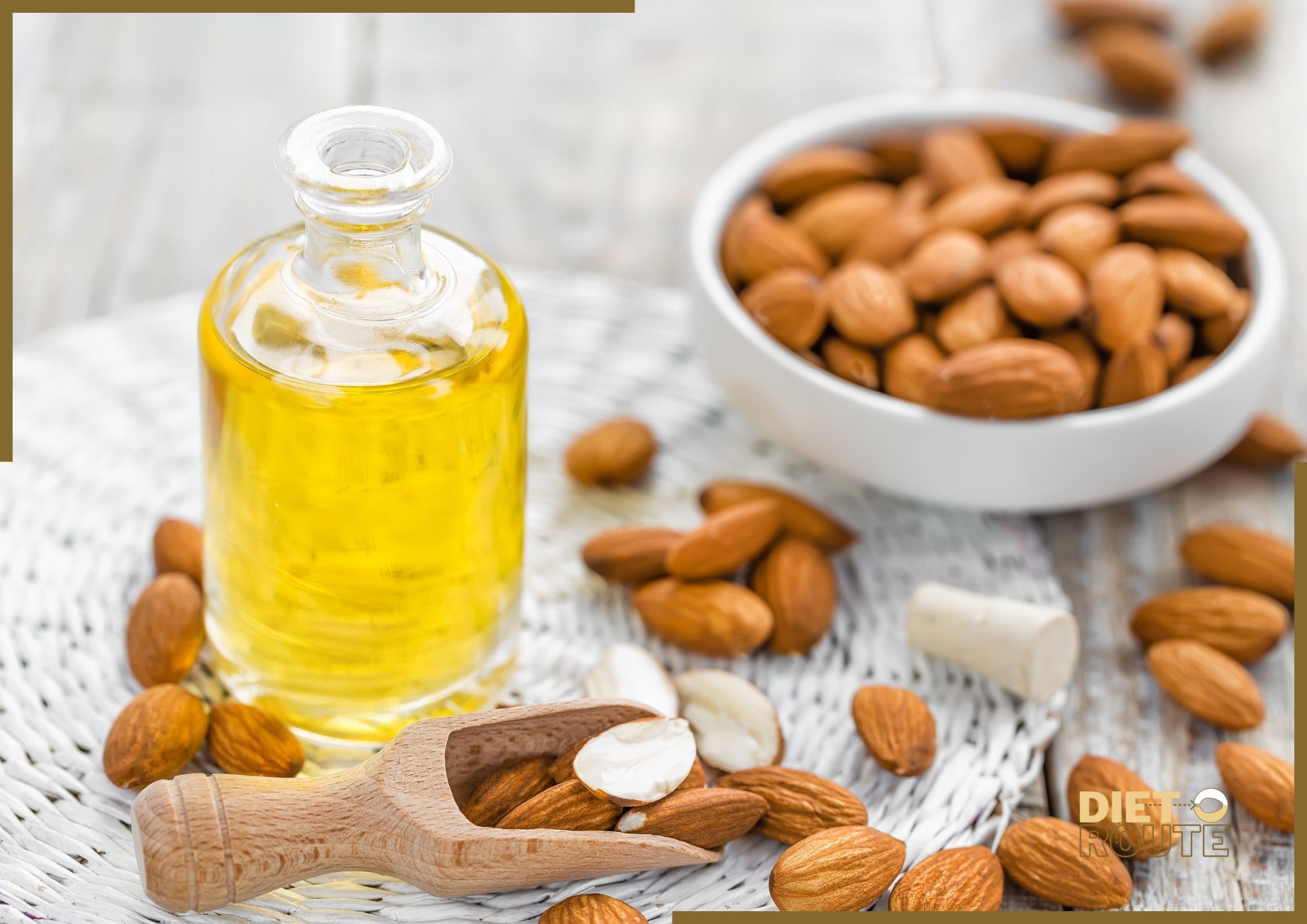Table of Contents
Introduction
Cheddar cheese is a famous variety of cheese that is known for its rich, creamy taste as well as its versatility in a variety of dishes. It is made from cow’s milk and has a distinct flavor that ranges from mild to sharp based on how long it has been aged. In addition to its delicious taste, It has a number of nutritional advantages. In this article, we’ll look at the nutritional value, talk about its pros and cons, answer some of the most common questions about it, and end with an overview of its role in a healthy diet.
Nutritional Value Approximately 100g
The values provided are approximate can vary depending on the size and quality.
| Nutrient | Amount | Percentage Daily Value |
| Calories | 403 kcal | 20% |
| Total Fat | 33.1 g | 51% |
| Saturated Fat | 20.7 g | 104% |
| Cholesterol | 105 mg | 35% |
| Sodium | 621 mg | 26% |
| Carbohydrates | 1.3 g | 0% |
| Sugars | 0.5 g | – |
| Protein | 24.9 g | 50% |
| Calcium | 721 mg | 72% |
| Vitamin A | 1059 IU | 21% |
| Vitamin B12 | 0.82 µg | 14% |
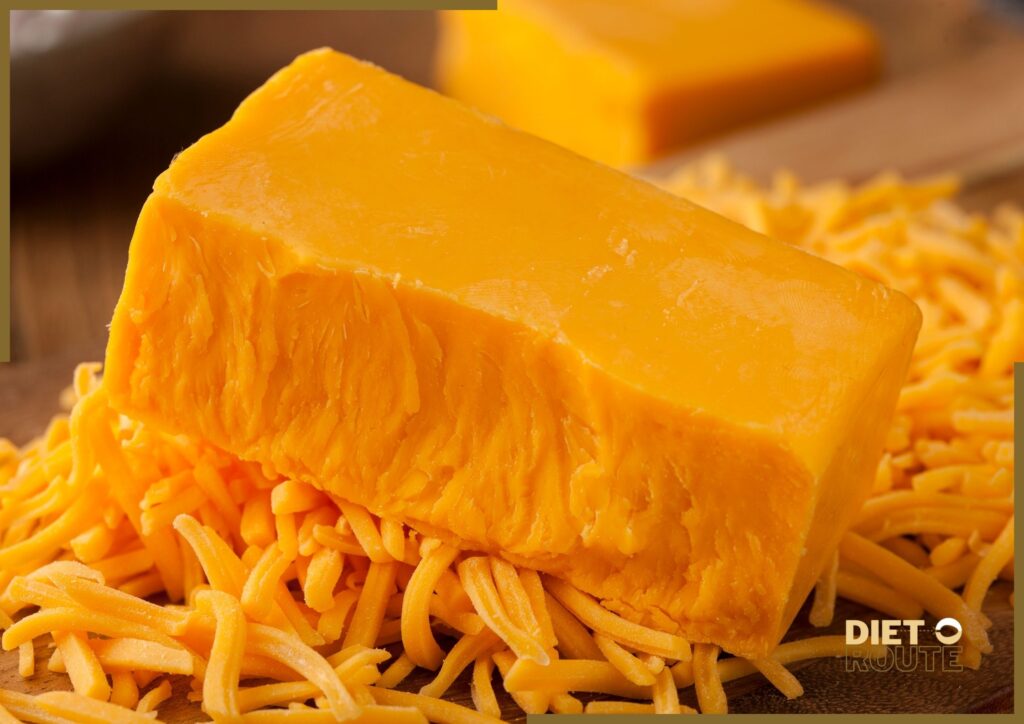
Pros
1.High in nutrients:
Cheddar cheese is a good source of essential nutrients like protein, calcium, and vitamin B12, which are important for keeping overall health.
2. High in Protein:
The protein in It is essential for muscle growth, repair, and other bodily functions.
3. Rich in calcium:
It is a good source of calcium, which helps keep bones and teeth healthy and promotes good bone health.
4. Vitamin B12:
Vitamin B12 is found in cheddar cheese and is essential for nerve activity, the production of red blood cells, and DNA synthesis.
Cons
1. High in Fat and Saturated Fat:
Cheddar cheese is high in fat and saturated fat, which, when consumed in excess, may add to weight gain and raise the risk of heart disease.
2. Sodium:
It has a moderately high sodium content, which can be a problem for individuals on a low-sodium diet or with high blood pressure.
3. Lactose intolerance:
Like other dairy goods, It has lactose in it. People who can’t handle lactose may have stomach pain when they eat cheddar cheese.
In a Nut Shell
Protein, calcium, and vitamin B12 are just some of the nutritional advantages of cheddar cheese. Due to its high fat, saturated fat, and sodium content, it can be a valuable part of a balanced diet, but it is essential to consume it in moderation. Individuals can enjoy the delicious taste of cheddar cheese and benefit from its advantages by taking amount sizes into account and including it in a well-balanced meal plan. To ensure that individual needs and goals are met, it is advised to consult a healthcare professional or certified dietitian before making any dietary decisions.
Frequently Asked Questions (FAQs)
1. Are cheddar cheeses safe for individuals with lactose intolerance to consume?
It has a lower lactose content than other dairy products, making it easier for some individuals with lactose intolerance to tolerate. It’s advisable to keep an eye on one’s own reactions because tolerance levels may vary.
2. Can cheddar cheese be part of a diet that helps you lose weight?
It should be consumed in moderation due to its calorie and fat content, even though it can be a part of a balanced diet. For weight management, it’s important to watch how much you eat and think about the total calorie balance.
3. Are individuals with high cholesterol safe to eat cheddar cheese?
It is high in saturated fat, which can raise cholesterol levels. People with high cholesterol should consume it in moderation and choose lower fat cheese when they can.
4. Are Individuals with diabetes are able to consume cheddar cheese?
As part of a well-balanced meal plan, It can be consumed by individuals with diabetes. But it’s important to watch how much you eat and think about how many carbs you eat total.
5. Does cheddar cheese have a lot of iron in it?
Yes, It is a good source of calcium, which is essential for bone health and other bodily functions.
6. Can cheddar cheese be frozen to keep it for a long time?
Even though It can be frozen, the texture and taste may change. To get the best taste and quality, it’s usually best to consume it within a reasonable amount of time.
7.Can lactose-free diets use cheddar cheese?
There are small amounts of lactose in Cheddar cheese. While it may be appropriate for some individuals on a lactose-free diet, it is advisable to consult a doctor or dietitian for specific advice.
8. How should cheddar cheese be stored?
It should be stored in a specific way. Cheddar cheese should be stored in the fridge at temperatures below 40°F (4°C). Wrap it tightly in plastic wrap or wax paper to keep it fresh and prevent moisture loss.
9. Can allergies be caused by cheddar cheese?
It is made from cow’s milk, and individuals who are allergic to milk proteins may experience allergies to it. It’s important to be aware of any allergies you might have and find other choices if you need to.
10. Can cheddar cheese be consumed during pregnancy?
It is usually safe to consume made from pasteurized milk while pregnant. For specific dietary advice, pregnant individuals should consult their healthcare provider.
Conclusion
